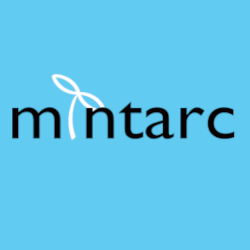SeaFile
From Mintarc Forge
Seafile is an open-source file synchronization, sharing, and collaboration platform designed to deliver security, and scalability. It provides a self-hosted alternative to proprietary cloud services like Dropbox, Google Drive, and Microsoft OneDrive, enabling users to maintain full control over their data while benefiting from advanced features for file management and collaboration. Seafile is widely adopted by individuals, enterprises, educational institutions, and government organizations due to its flexibility, privacy-focused design, and enterprise-grade capabilities.
Seafile organizes files into "libraries," which can be synced individually across devices or shared with teams. These libraries provide a structured way to manage files and support selective synchronization, allowing users to sync only specific folders or files to optimize storage usage. The platform is cross-platform, with clients available for Windows, macOS, Linux, iOS, and Android. This ensures seamless access to files across devices while maintaining a consistent user experience.
Seafile is reliable file synchronization capabilities. The platform uses a block-level syncing mechanism called "content delta transfer," where only changes (deltas) within files are transmitted during updates. This minimizes data transfer requirements and improves efficiency. Additionally, Seafile supports interrupted transfer recovery and multi-server synchronization for redundancy and availability. These features make it particularly suitable for environments with large datasets or distributed teams.
Collaboration is a focus of Seafile. Its built-in document editor, SeaDoc, enables real-time collaborative editing of documents directly within the platform. Users can lock files to prevent conflicts during simultaneous editing and manage permissions at a granular level (e.g., read-only or read-write access). Folder sharing is supported both within groups and externally via password-protected or expiring download/upload links. Version control allows users to revert to previous file versions or recover from accidental changes, while library snapshots provide an additional layer of protection by enabling restoration of entire libraries to earlier states.
The platform offers client-side end-to-end encryption for sensitive data through its "encrypted library" feature. When using encrypted libraries, files are encrypted on the client side before being uploaded to the server. The encryption password is never stored on the server, ensuring that even administrators cannot access the contents of encrypted files. Encryption keys are derived using secure algorithms like PBKDF2 with AES-256/CBC encryption for data transfer. This zero-knowledge design ensures maximum privacy for users handling sensitive information.
Seafile also supports integration with enterprise systems such as LDAP/Active Directory for user authentication and role-based access controls. Administrators can enforce policies like two-factor authentication (2FA) for enhanced security and compliance with organizational standards. For deployments requiring scalability, Seafile's architecture is optimized for performance; it can handle millions of files and petabyte-scale storage while maintaining low hardware resource consumption.
The platform’s modularity allows extensive customization through plugins or API integration. For example, Seafile can be integrated with third-party tools like OnlyOffice or Collabora Online for advanced document editing or with project management systems for workflow automation. Its "virtual drive" feature enables users to access cloud-stored files as if they were local without occupying disk space unnecessarily—a feature particularly useful in environments with limited storage capacity.
Seafile’s commitment to privacy extends beyond encryption. It allows self-hosting on private servers or rented infrastructure, giving users complete control over their data's location and jurisdiction. This makes it an appealing choice for organizations operating under strict data sovereignty laws such as GDPR or HIPAA compliance requirements.
Despite its strengths, Seafile has faced criticism in some circles regarding occasional delays in addressing security vulnerabilities or providing timely updates for certain features. However, the platform's active community and regular releases have largely mitigated these concerns over time.
Seafile is a open-source platform that combines file synchronization with collaboration tools while prioritizing security and privacy through client-side encryption and self-hosting options. Its modular design ensures adaptability across a wide range of use cases—from personal file management to enterprise-scale deployments—making it a versatile solution in the cloud storage ecosystem.
